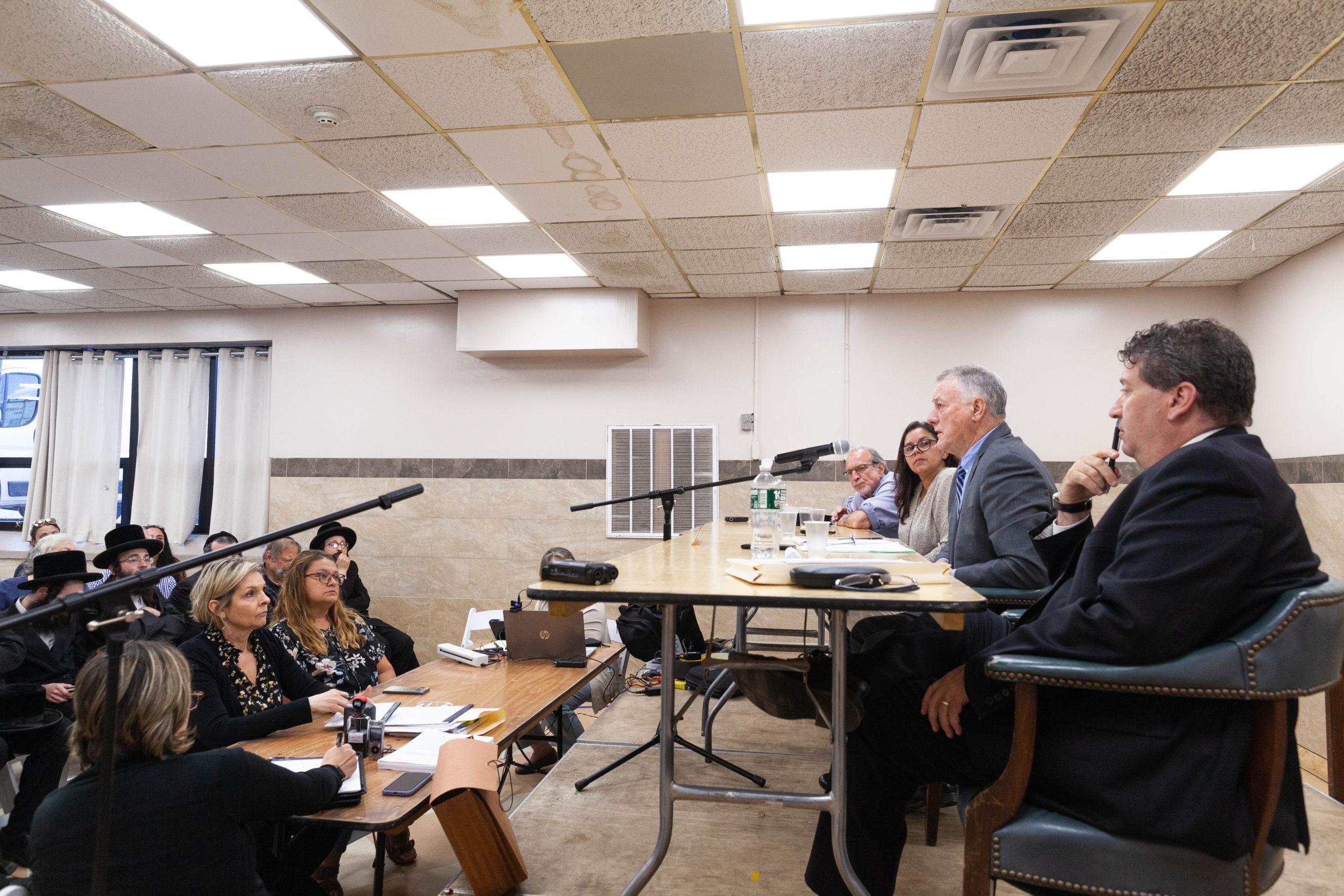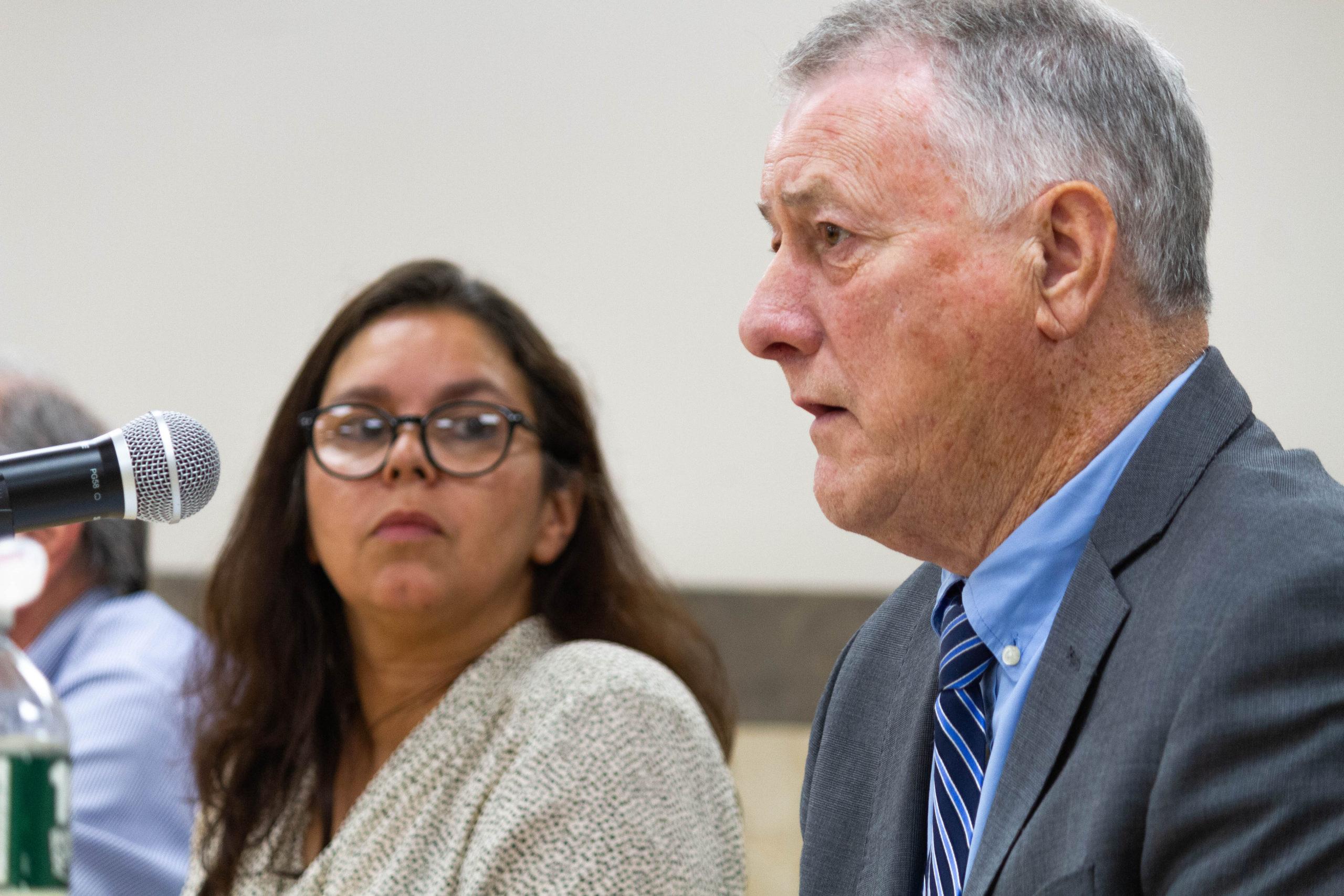
LISTEN:
By: Patricio Robayo
Residents of Kiamesha Lake assembled once again for a joint public hearing, between the towns of Fallsburg and Thompson on a petition to create a new village, the Village of Ateres.
A new village, with a proposed 500 residents, is actively pursuing its establishment. The intended location for this new village is within the area of Thompson and portions of the neighboring Town of Fallsburg as well.
Once more, Thompson Town Supervisor William Rieber Jr. emphasized to the attendees that the public comments need to focus on the legal sufficiency of the petition only at this point of the process.
Rieber said “Okay, let the record show is the reconvening of the meeting that was originally started on August 3…”
During this meeting and in previous gatherings, attendees raised concerns about the legitimacy of the signatures on the petition. These concerns encompassed issues such as missing page numbers, potential forgery, and disparities in the provided addresses.
Thompson Town Supervisor William Rieber Jr. assured the participants that all objections would undergo thorough examination before any final conclusions are reached.
Following this, both Rieber and Fallsburg Supervisor Katherine Rappaport concluded the joint hearing. They now have a ten-day window starting from August 23, 2023, to formulate a decision. Rieber clarified that this decision-making process would involve the town clerks.
Despite the public’s insistence on transparency and the desire for review outcomes to be made public, Rieber asserted that the results of the review wouldn’t be disclosed on an individual basis. Instead, the supervisors would collaborate to finalize their decisions, which would subsequently be shared with the public. 
While this approach may have left some attendees dissatisfied, Rieber restated the significance of adhering to the process’s legal requirements and protocol.
What happens after that?
Previously, Michael Mednick, the Thompson Attorney, said once a decision is reached by supervisors, a subsequent five-day window opens for the necessary paperwork to be filed with the Town Clerks. This paperwork includes the hearing minutes, the original petition, all objections raised, and the supervisors’ decisions.
When both supervisors agree on the petition’s validity, a 30-day period begins during which any opposing party can initiate an Article 78 proceeding. This legal procedure provides a chance to challenge the decision in the Supreme Court.
Similarly, if the supervisors are in disagreement or decide against the petition, another 30-day interval follows. During this time, the petitioners themselves can bring an Article 78 proceeding to challenge the supervisors’ denial.
If no Article 78 proceeding is initiated, the supervisors’ decision solidifies. In cases where the supervisors’ decision is a denial, and no legal challenge is launched, the matter reaches its conclusion.
On the other hand, if the supervisors’ decision is approved and no legal challenge is raised, the process advances further. A crucial referendum is scheduled within 40 days, allowing the inhabitants of the potential village to vote for or against the proposed incorporation.
This referendum provides the community with a direct say in whether or not the village should happen.
Depending on the court’s decision, two outcomes are possible. If the court upholds the denial of the petition, the matter concludes. Conversely, if the court rules in favor of the petition, it can lead to either a subsequent referendum or the conclusion of the incorporation process.


I would like information on the village. Will they pay tax,what law will they follow, what about water supplies to this village. What are the responsibilities to the towns.